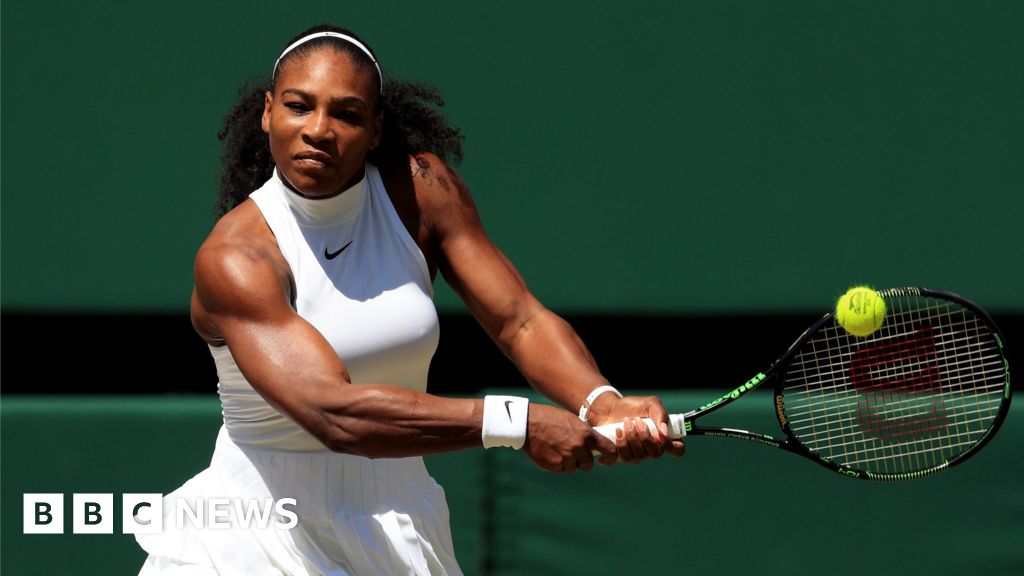Serena Williams is more than just a tennis icon. She’s a global symbol of power, perseverance, and resilience. With 23 Grand Slam titles to her name, she has dominated the world of professional sports for over two decades. But behind the trophies, applause, and unshakable confidence lies a reality that millions of women around the world intimately understand — the raw, emotional, and often thankless journey of motherhood.
In a candid and deeply personal revelation, Serena Williams opened up about the emotional toll motherhood has taken on her, shedding the glamorous layers of celebrity to reveal a very human struggle. Her vulnerability resonated not just because of her fame, but because of the universal truth at its core: motherhood, while beautiful, is also incredibly demanding — often without recognition or reward.
This article explores Serena’s heartfelt confession, the broader challenges of modern motherhood, and why her story is a powerful wake-up call for society.
From Center Court to Changing Diapers: Serena’s Transition
After giving birth to her daughter, Alexis Olympia Ohanian Jr., in 2017, Serena Williams faced a battle unlike any she had ever fought on the tennis court. The pregnancy was riddled with complications. A life-threatening pulmonary embolism after delivery, multiple surgeries, and a long recovery period marked the beginning of her motherhood journey. But the physical pain was just one part of the ordeal.
What Serena didn’t anticipate — and what many mothers don’t speak of — was the emotional upheaval that followed. In interviews and social media posts, she began to share fragments of her internal world: the sleepless nights, the crushing self-doubt, and the feeling of losing herself while trying to be everything for her child.
“I sometimes still feel like I’m not doing enough for my baby,” she wrote in one viral Instagram post. “We have all been there. I work a lot, I train, and I’m trying to be the best mom I can be.”
Her words struck a chord. They pulled back the curtain on a universal experience — the overwhelming pressure to be a perfect mother, the isolation, and the emotional labor that often goes unacknowledged.
The Unseen Weight of Motherhood
For centuries, motherhood has been romanticized as a noble, selfless duty — and it is. But what’s often missing from the conversation is just how much mental, physical, and emotional effort it requires, every single day. Serena’s story is a vivid example of this hidden weight.
Behind the scenes, countless mothers battle:
-
Sleep deprivation and exhaustion
-
Postpartum depression and anxiety
-
Loss of identity or career momentum
-
Constant guilt over not doing or being enough
-
A society that praises sacrifice but offers little support
Serena’s celebrity status didn’t shield her from these realities. If anything, it intensified them. Returning to the spotlight, training for tournaments, managing a public image, and caring for a newborn — all while healing from a traumatic birth — was a balancing act that pushed her to the brink.
Her openness shattered the illusion that “having it all” comes without cost. It revealed a truth many mothers hide: motherhood can be both deeply fulfilling and painfully lonely at the same time.
Why Serena’s Revelation Matters
In speaking out, Serena has given voice to millions of women who feel invisible in their struggles. Her admission doesn’t just inspire empathy — it ignites a much-needed conversation about the systemic undervaluing of motherhood.
Despite the emotional labor and sacrifice involved, motherhood is rarely seen as “work” in the same way a paid career is. There’s no paycheck, no days off, no formal recognition — yet it’s the most foundational role in society.
Serena’s experience also highlights the intersectionality of race and motherhood. As a Black woman, she has spoken openly about how her medical concerns were dismissed during childbirth — a problem well-documented in healthcare systems around the world. Black mothers are statistically more likely to face complications and less likely to be heard.
By using her platform, Serena is pushing society to:
-
Normalize honest conversations about the struggles of parenting
-
Acknowledge maternal mental health
-
Challenge the “supermom” myth
-
Advocate for better healthcare and postpartum support
-
Recognize the value of emotional labor
Her vulnerability becomes a form of activism, urging people to see motherhood not just as a personal choice but as a societal cornerstone that deserves care, respect, and support.
Redefining Strength: From Winning Titles to Asking for Help
One of the most powerful aspects of Serena’s revelation is how it redefines what strength looks like. Strength isn’t just about pushing through pain or conquering a court. It’s also about acknowledging your limits, asking for help, and speaking your truth — even when it’s messy.
In doing so, Serena breaks down harmful stereotypes. The idea that mothers must be endlessly self-sacrificing, always joyful, and never tired is both unrealistic and damaging. It keeps women silent and ashamed when they need compassion the most.
Serena’s message is simple but transformative: It’s okay to struggle. It’s okay to say you’re overwhelmed. And it’s okay to put yourself first sometimes. Self-care is not selfish — it’s survival.
What Mothers Really Need: Support Over Judgment
Serena’s story isn’t a cry for sympathy — it’s a call for systemic change. For too long, mothers have been praised in theory but ignored in practice. What they need isn’t more applause; it’s real, tangible support.
Here’s what that looks like:
-
Paid parental leave
-
Affordable childcare
-
Accessible mental health services
-
Workplace flexibility
-
Community networks of care
When society begins to value caregiving as much as career-building, when emotional labor is acknowledged as real labor, and when mothers are seen as whole people — not just vessels of sacrifice — that’s when change will come.
A Mother’s Legacy Beyond the Court
As Serena gradually transitions out of professional tennis, her legacy is evolving. Her Grand Slam wins and powerful serves will always be remembered, but now, a different kind of legacy is taking shape — one of honesty, humanity, and advocacy.
She’s showing the world that motherhood doesn’t diminish a woman’s power — it reshapes it. It teaches patience, deepens compassion, and forces you to grow in ways you never expected.
By sharing her heart-wrenching truth, Serena is doing what she’s always done: breaking barriers, rewriting narratives, and leading with courage.
The Strength in Struggle
Motherhood is often called the hardest job in the world — and rightly so. But it’s also the most undervalued. Serena Williams’ revelation lifts the veil on this truth, reminding us that behind every smiling mother is a woman carrying invisible burdens.
Her story is more than a celebrity confession. It’s a mirror. A movement. A reminder that behind the world’s strongest women are moments of doubt, exhaustion, and unspoken pain — and that doesn’t make them weak. It makes them real.
As society, we owe it to all mothers to listen, to support, and to stop expecting perfection. Because sometimes, just surviving the day is a victory. And sometimes, the greatest strength lies not in holding it all together — but in having the courage to say, “This is hard. I need help.”
Serena said it. Now we must hear it.
